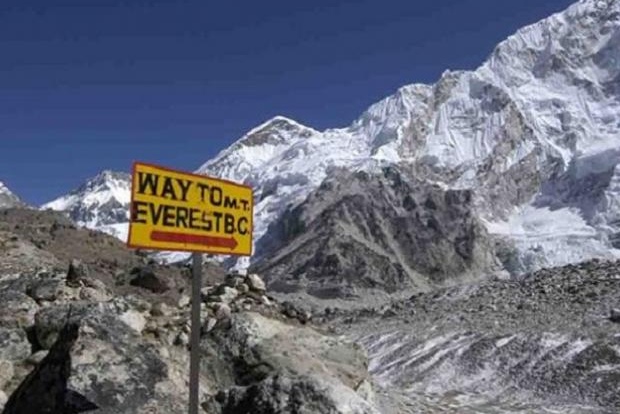
Spike in COVID cases atop Mt Everest has Nepal worried
After a year of low earning due to COVID-19, Nepal this year eased quarantine rules in an effort to attract more climbers despite the difficulties of treating them if they contract the virus. Late April, a Norwegian climber trying his luck to reach the Everest tested positive. Erlend Ness later reported he was doing fine in a hospital after he was evacuated from a base camp.

After a year of poor earnings due to COVID-19, Nepal this year eased quarantine rules in an effort to attract more climbers despite the difficulties of treating them if they contract the virus. Late April, a Norwegian climber trying his luck to reach the Everest tested positive. Erlend Ness later reported he was doing fine in a hospital after he was evacuated from a base camp.
Since then there has been COVID outbreak on Mt Everest, infecting at least 100 climbers and support staff, media reports quoting an expert mountaineer said, despite sharp denial from Nepalese authorities. Associated Press said 408 foreign climbers were issued permits to climb Everest this season, aided by several hundred Sherpas and support staff who’ve been stationed at base camp since April.
Also read: Brazil, Nepal want India to supply COVID-19 vaccines
Nepal reported 8,607 new infections and 177 deaths on May 21, bringing the nation’s totals since the pandemic began to more than 497,000 infections and 6,024 deaths.
Nepal’s Department of Tourism has allotted hundreds of permits in its eagerness to return to business. Climbers, who have paid more than of ₹25 lakh for their chance to summit, are waiting it out despite the risk, because there’s been no announcement that permits will be honoured at a later date if they leave, Hindustan Times said.
Also read: Survivor of Everest ‘traffic jam’ recounts horror en route, calls for tougher rules
The only COVID testing at the base camps is informal, conducted by doctors accompanying larger expeditions, and almost all these tests are of the relatively unreliable rapid antigen variety, HT said.
While international climbers are required to take the more reliable RT-PCR test on arrival in Kathmandu, this is not followed uniformly. Besides, there is no protocol for testing the Nepali staff who accompany climbing teams. This means that COVID-positive climbers and staff are allowed to mingle with others. In the mountains, COVID-positive climbers and Sherpas have had to be airlifted mid-climb and put on ventilators.


